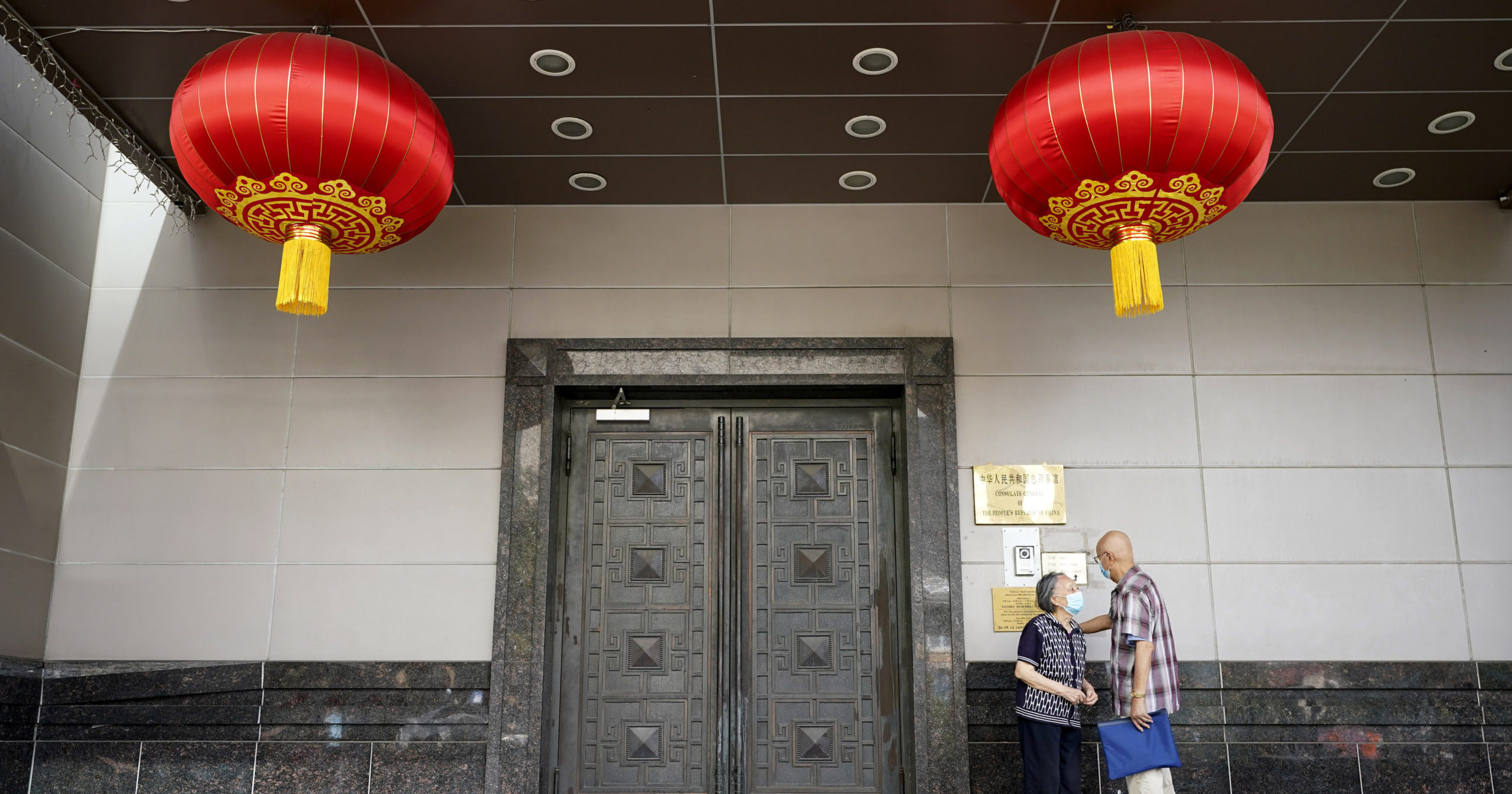
'Malicious Slander': China Responds to Closing of US Consulate, Alleged Espionage Hotspot
China said Thursday that “malicious slander” is behind an order by the U.S. government to close its consulate in Houston, Texas, maintaining that its officials never operated outside ordinary diplomatic rules.
Foreign ministry spokesperson Wang Wenbin said the move against the consulate, the first one China opened in the U.S. after the establishment of diplomatic ties in 1979, goes against the basic norms of international relations.
“This is breaking down the bridge of friendship between the Chinese and American people,” Wang told reporters at a daily briefing.
He dismissed U.S. allegations of espionage and intellectual property theft, calling them “completely malicious slander.”
The U.S. on Tuesday ordered the consulate closed within 72 hours, alleging that Chinese agents had tried to steal data from facilities in Texas, including the Texas A&M medical system and The University of Texas MD Anderson Cancer Center in Houston.
Wang did not comment on speculation about whether a U.S. consulate in China would be ordered to close in response.
“China will surely take necessary measures to safeguard its legitimate rights and interests,” he said, without elaborating.
The U.S. has an embassy in Beijing and consulates in five other mainland cities: Shanghai, Guangzhou, Chengdu, Shenyang and Wuhan. It also has a consulate in Hong Kong.
Relations between the U.S. and China have nose-dived in recent months over human rights abuses and Chinese aggressiveness in Hong Kong and the South China Sea.
China’s relations with Britain have also become increasingly strained.
Wang criticized the U.K. for opening a pathway to British citizenship for up to 3 million Hong Kong residents.
He said China might stop recognizing the British National Overseas passport that those 3 million hold or are eligible to get.
Britain on Wednesday announced a January start date for new rules that will allow holders of the passport to live and work in the U.K. and eventually obtain citizenship.
Britain adopted the immigration rules after China imposed a strict national security law on Hong Kong, a former British colony, at the end of June.
The Western Journal has reviewed this Associated Press story and may have altered it prior to publication to ensure that it meets our editorial standards.
Truth and Accuracy
We are committed to truth and accuracy in all of our journalism. Read our editorial standards.
Advertise with The Western Journal and reach millions of highly engaged readers, while supporting our work. Advertise Today.












